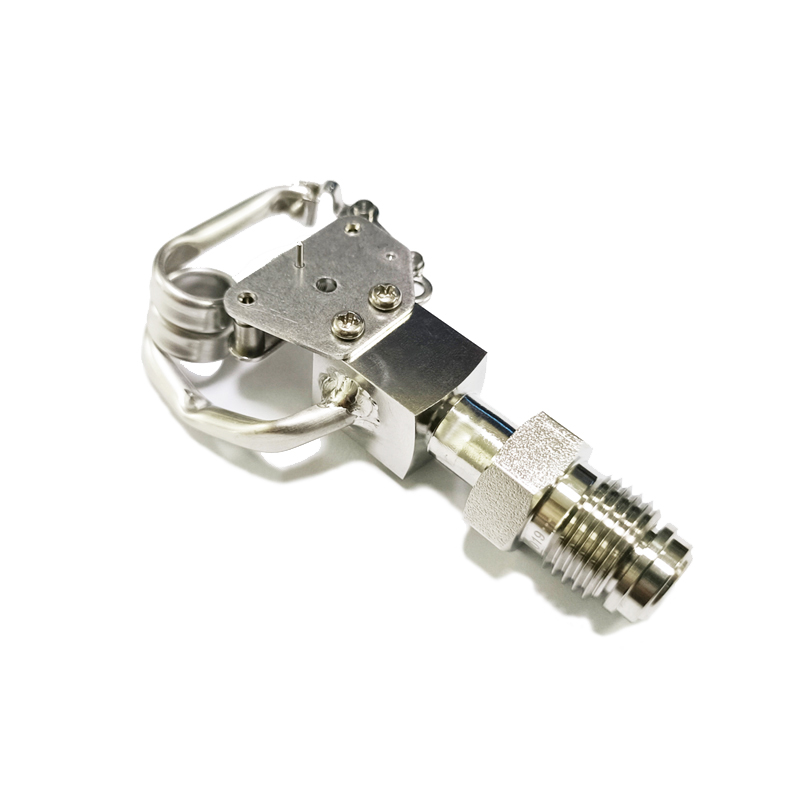
जुलाई . 28, 2024 16:17 Back to list
Custom Diaphragm Seal Pressure Gauge Solutions for Accurate Measurement in Various Applications
Understanding Custom Wika Diaphragm Seal Pressure Gauges
Pressure measurement is a crucial aspect of various industrial applications, ranging from chemical processing to food production. Accurate pressure readings are essential for ensuring safety, efficiency, and the overall success of operations. One of the most reliable instruments used for this purpose is the diaphragm seal pressure gauge, particularly those offered by Wika, a renowned manufacturer in the field. This article will delve into the significance of custom Wika diaphragm seal pressure gauges, their construction, advantages, and applications.
What is a Diaphragm Seal Pressure Gauge?
A diaphragm seal pressure gauge is a specialized instrument used to measure the pressure of fluids in harsh environments. Unlike standard pressure gauges, which may be susceptible to the media they measure, diaphragm seal gauges feature a flexible diaphragm that separates the measuring element from the process media. This design is particularly beneficial when dealing with corrosive, viscous, or dirty fluids that could damage traditional gauges.
Customization and Its Importance
Wika is known for its commitment to quality and innovation, and they offer a range of customization options for their diaphragm seal pressure gauges. Customization is essential as it allows engineers and plant managers to select gauges that meet the specific requirements of their applications. Custom features may include different diaphragm materials, seal sizes, housing designs, and output signal configurations.
By tailoring a pressure gauge to fit specific operating conditions, such as temperature extremes, pressure ranges, and the chemical properties of the process media, companies can ensure that the gauges provide accurate and reliable readings, thereby enhancing operational efficiency.
Construction and Features
The design of Wika diaphragm seal pressure gauges typically involves several critical components the diaphragm, seal chamber, fill fluid, and the pressure measuring element.
1. Diaphragm This is the primary component that reacts to pressure changes. Wika offers different materials for diaphragms, including stainless steel, Hastelloy, and other alloys, ensuring compatibility with various media.
2. Seal Chamber The chamber encases the diaphragm and acts as the interface between the pressure media and the measuring element. Custom seal chambers can be designed to accommodate specific installation requirements or ensure optimal isolation from the medium.
custom wika diaphragm seal pressure gauge

3. Fill Fluid The space between the diaphragm and the measuring element is filled with a fluid, usually oil or glycerin. This fills the chamber and transmits pressure to the measuring element. Custom fill fluids can be selected based on temperature stability and compatibility with the process.
4. Pressure Measuring Element This could be a Bourdon tube, piezoresistive sensor, or another mechanism that translates diaphragm movement into a pressure reading. Wika offers various configurations for these elements based on accuracy needs.
Advantages of Customization
Opting for a custom Wika diaphragm seal pressure gauge provides multiple benefits
- Enhanced Durability By choosing materials specifically suited for the application, the durability of the gauge is improved, reducing maintenance needs and prolonging the gauge's lifespan. - Increased Accuracy Customization ensures that the gauge is designed precisely for the process conditions, significantly enhancing measurement accuracy.
- Operational Efficiency Reliable and precise pressure measurements contribute to better control over the processes, leading to improvements in efficiency and safety.
Applications
Custom diaphragm seal pressure gauges find applications across various industries, including
- Chemical Processing Handling corrosive substances safely. - Food and Beverage Maintaining hygiene and safety standards. - Oil and Gas Operating in extreme conditions and ensuring accurate readings. - Pharmaceuticals Maintaining stringent quality standards.
In conclusion, custom Wika diaphragm seal pressure gauges are integral to successful pressure management in many industries. By understanding their construction, customization options, and applications, businesses can make informed decisions that enhance safety and operational efficiency. Whether dealing with harsh chemicals or maintaining precise pressure in sensitive processes, these gauges stand out as a reliable solution.
-
High-Precision 5 Valve Manifold Differential Pressure Gauge Suppliers
NewsApr.29,2025
-
High-Precision Diaphragm Vacuum Pressure Gauges Manufacturers & Quotes
NewsApr.29,2025
-
Omega Differential Pressure Gauges High Accuracy & Durability
NewsApr.28,2025
-
Low Pressure Differential Pressure Gauges Precision Solutions & Quotes
NewsApr.28,2025
-
Digital Diaphragm Pressure Gaauge Precision Measurement & OEM Quotes
NewsApr.28,2025
-
Differential Pressure Gauge China Price High-Accuracy & Best Quotes
NewsApr.28,2025
